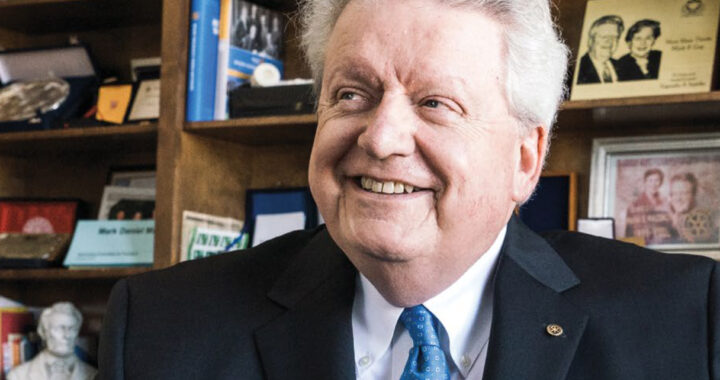 Our speaker cancelled at the last moment so the club had to put up with me chatting about the History of Vegetables. Fortunately I didn't need to show anything on the screen because most people know what cabbages, lettuces and beetroot look like...at least I think they do. They come in plastic bags, cut up with a Woolworth's sticker on them.
Our speaker cancelled at the last moment so the club had to put up with me chatting about the History of Vegetables. Fortunately I didn't need to show anything on the screen because most people know what cabbages, lettuces and beetroot look like...at least I think they do. They come in plastic bags, cut up with a Woolworth's sticker on them.Just to give you a bit of the flavour of the talk. Swiss Chard was first produced in Sicily and Latin for a thistle is carduus , French is chardon. It's a well chosen name.
 The weekend saw the first of our monthly Christmas Collections at Spar Norwood. It never crossed my mind to take a photograph of the happy workers and the Leopards from Alexandra. On our shift we had a brilliant salesman who could have been no older than 11.....
The weekend saw the first of our monthly Christmas Collections at Spar Norwood. It never crossed my mind to take a photograph of the happy workers and the Leopards from Alexandra. On our shift we had a brilliant salesman who could have been no older than 11.....Instead you can have a picture of sugar beet which was, as well as the potato, encouraged in its development by Napoleon.
In 1788 the French consumed 1kg of sugar per person per annum. Today the Americans consume per person 1kg per week.
This Week
Our speaker is Khanyisile Mboya who is talking on the African Leadership Academy.
The African Leadership Academy (ALA) is a residential, secondary institution located in the outskirts of Johannesburg, South Africa. It is dedicated to 16 to 19-year-olds from Africa and the rest of the world, with alumni from 46 countries currently.
Founded in 2004 by Fred Swaniker, Chris Bradford, Peter Mombaur, and Acha Leke, ALA officially opened in September 2008 with an inaugural class of 97 students.[ ALA seeks to transform Africa by identifying, developing, and connecting the next generation of African leaders. To achieve this goal, ALA teaches a two-year curriculum in African Studies and Entrepreneurial Leadership, as well as the usual academic core subjects.
The campus is located in Honeydew, on the outskirts of Johannesburg. Students share a dormitories, and there are modern facilities including a sports field, 350 seat auditorium, classrooms and a dining hall.
I hope Khanyisile doesn't just talk about the Academy because she was a major contributor to the book 'We are No Longer at Ease' - the Struggle for Fees Must Fall.
Fund Raising Event
This will be a Quiz Evening on Wednesday 23rd October. A quiz will, at least, be part of it. It's in our interest to get as many people as possible there....it's not to make money out of Club members! Diarise the date and we will get more information in due course.
It’s been three years since health officials last reported a case of polio caused by the wild poliovirus in Nigeria. The milestone, reached on 21 August, means that it’s possible for the entire World Health Organization (WHO) African region to be certified wild poliovirus-free next year.
 |
| Volunteers vaccinate children in Maiduguri, Nigeria, against polio, marking the houses they’ve visited. |
Nigeria’s success is the result of several sustained efforts, including domestic and international financing, the commitment of thousands of health workers, and strategies to immunize children who previously couldn’t be reached because of a lack of security in the country’s northern states.
“Rotary, its Global Polio Eradication Initiative partners, and the Nigerian government have strengthened immunization and disease detection systems,” says Michael K. McGovern, chair of Rotary’s International PolioPlus Committee. He adds: “We are now reaching more children than ever in some of the hardest-to-reach places in Nigeria.”
McGovern says Rotary members in Nigeria play an important role in ridding the country of the disease. “Rotarians have been hard at work raising awareness for polio eradication, advocating with the government, and addressing other basic health needs to complement polio eradication efforts, like providing clean water to vulnerable communities.”
Nigeria is the last country in Africa where polio is endemic. Once Africa is certified as free of the wild poliovirus, five of the WHO’s six regions will be free of wild polio. Polio remains endemic in Afghanistan and Pakistan, which means transmission of the virus has never been stopped.
Dr. Tunji Funsho, chair of Rotary’s Nigeria National PolioPlus Committee, acknowledges the milestone but cautions Rotary members about celebrating too soon. He cites the challenge of making certain that routine immunizations reach every child in Nigeria.
“It’s paramount that we ensure all doors are locked to the re-entry of the wild poliovirus into our country,” says Funsho.
Funsho says to achieve this, Rotary needs to maintain strong advocacy efforts, continue to increase awareness of immunization campaigns, and ensure members raise necessary funds. Rotary has contributed $268 million to fight polio in Nigeria.
“As the first organization to dream of a polio-free world, Rotary is committed to fulfilling our promise,” says McGovern. “Our progress in Nigeria is a big step toward that goal, but we need to maintain momentum so that Pakistan and Afghanistan see the same level of progress.”























